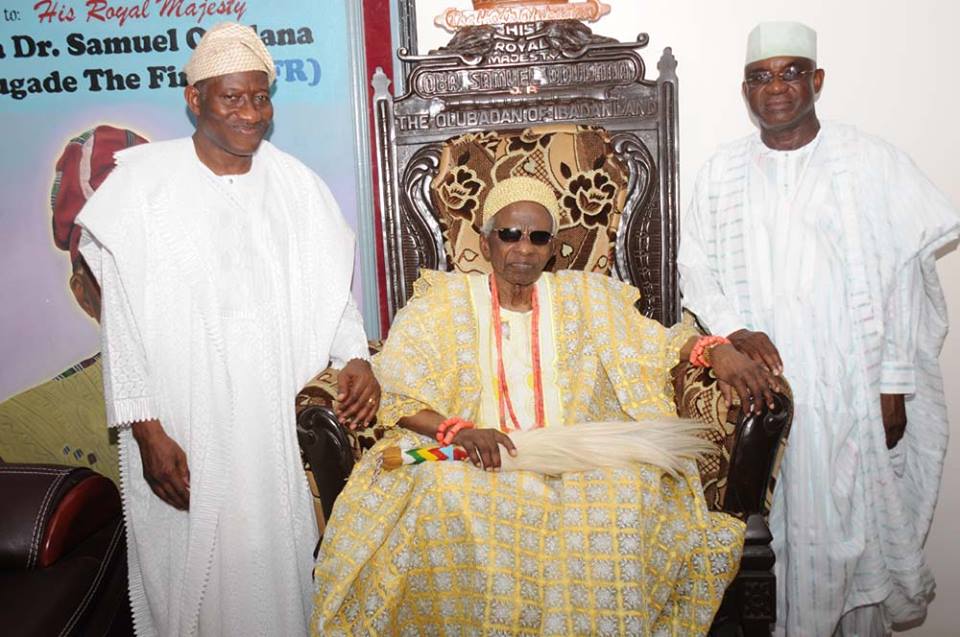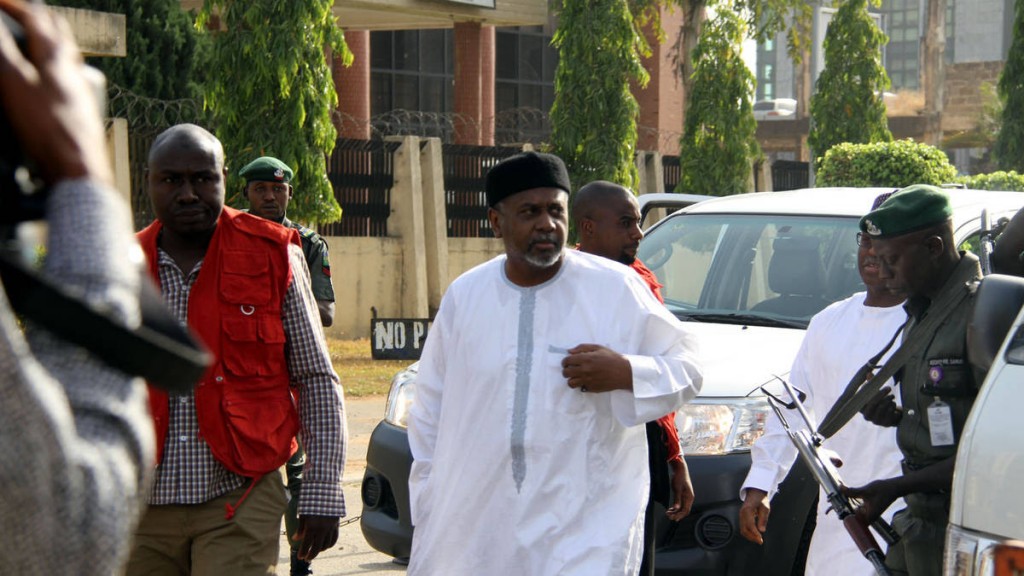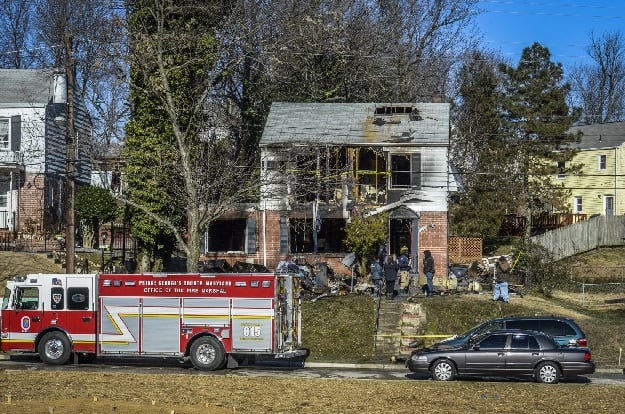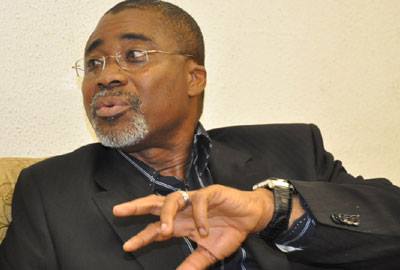The title Olubadan could be translated as ‘the Lord of Ibadan’ but for the eight years that he presided over the throne, Samuel Odulana Odugade did not exactly lord himself over his people.
A retired soldier, teacher and politician, Odugade was a no nonsense monarch. Two years ago, he deposed Olusegun Ojetade, one of his revered chiefs, for lacing a deadly anti-adultery charm, called “magun”, on his wife.
According to reports, two brothers, Kunmi Adetokun and Niyi Adeokun, who allegedly had intercourse with the wife of the chief and the wife of his brother, respectively, died as a result of the charm. The late monarch took the punitive measure against the traditional ruler, believing that the chief could have handled the matter with more civility.
THE OLDEST KING IN IBADAN LAND
Odugade died on January 19, exactly 86 days to his 102nd birthday, making him the oldest of the 40 monarchs to have presided over the kingdom.
Advertisement
Three weeks to his death, the king was embroiled in a controversy with Abiola Ajimobi, incumbent governor of Oyo state, over the elevation of nine high chiefs.
In line with the constitution, the traditional ruler wrote the governor to inform him of his decision to promote the chiefs, among who was Rashidi Ladoja, a former governor of the state and rival of Ajimobi.
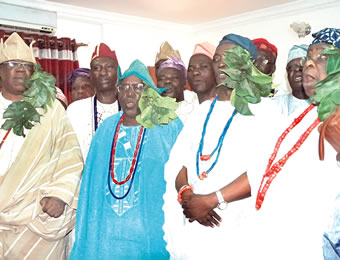
The Olubadan explained to the governor that since two prominent chiefs – Omowale Kuye, his deputy, and Sulaimon Omiyale, the Balogun Olubadan of Ibadanland, had died, he needed to elevate some other people, but a clearly-unimpressed Ajimobi said he would only sanction the exercise if the chiefs submitted medical reports certifying them fit for the various positions.
Advertisement
HE REFUSED AJIMOBI’S BIDDING
Odugade waved aside Ajimobi’s condition and promoted the chiefs. In return, the governor ordered the reversal of the promotion. It took the intervention of elders of the kingdom for the issue to be resolved.
In 2014, the king who had been having supremacy issues with Lamidi Adeyemi, the Alaafin of Oyo, fell out with former President Goodluck Jonathan for choosing the Alaafin over him during a visit to the state.
“While he and other members of the council awaited the arrival of the president, the president breached the protocol of visiting him as the chairman of the Oyo State Council of Obas and Chiefs and instead visited the Oyo state governor, Senator Abiola Ajimobi, who went with him to visit the Alaafin of Oyo, Oba Lamidi Adeyemi III,” read a statement issued by the palace.
Advertisement
“The development indicated that governor Ajimobi recognised the Alaafin of Oyo as the permanent Chairman of the State Council of Obas and Chiefs, contrary to the existing Chieftaincy Law as amended in 2011 in Cap 37 Laws of Oyo State, 2000, which makes the chairmanship title rotational between the Alaafin, the Olubadan and Soun of Ogbomoso every two years.”
DID HE FORGIVE JONATHAN?
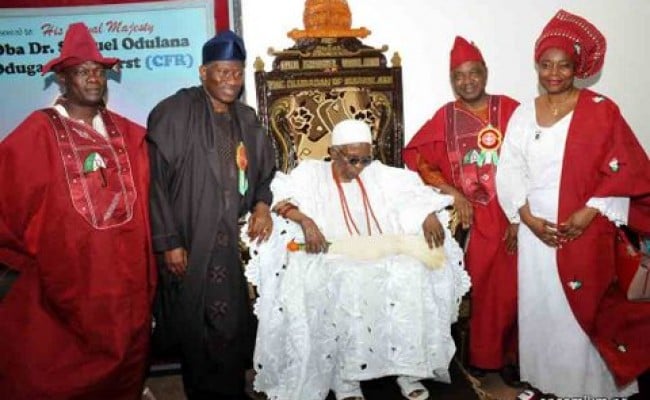
Jonathan subsequently apologised to the monarch, saying the omission was not deliberate. He also visited the king and attended his centenary birthday celebration. But it appeared as if the king found it difficult to forgive the former president, as he told his subjects to vote for President Muhammadu Buhari, then the candidate of the All Progressives Congress (APC) in the presidential election.
The late Olubadan, who ascended the throne in 2007, following the demise of Yunusa Ogundipe Arapasowu I, hailed from the Ladunni compound in Oja Igbo within Ibadan metropolis. He was born at Igbo-Elerin in Lagelu local government area of Oyo state, on April 14, 1914.
He began his elementary education at Saint Andrew’s School, Bamigbola, in Lagelu local government in January, 1922 before obtaining a transfer to Saint Peter’s School, Aremo in 1929.
Advertisement
In December 1936, the late monarch completed his middle school education at Mapo Central School. He developed his education through correspondence courses.
He had a stint with the United African Company (UAC) as a produce clerk, before taking up a teaching appointment at the Church Missionary Society (CMS) Elementary School, Jago, Ona-Ara Local Government Area in 1938.
Advertisement
Oba Odugade I also taught in several schools between 1939 and 1942.
During the second World War in 1939, the late monarch vacated the teaching job for a more challenging duty as an army officer.
Advertisement
After the end of the war in 1945, he was saddled with the responsibility of demobilising returning soldiers in Lagos, a role which earned him an exemplary character award of the army 4th brigade.
He was subsequently appointed to man the colonial office education department in 1946.
Advertisement
He voluntarily retired from the civil service to embrace politics. The late Oba aided the establishment of both primary and secondary schools in various parts of the old Western Region.
In the 1959 pre-independence federal elections, he contested to represent his constituency as a member of the house of representatives and was appointed parliamentary secretary to the late Abubakar Tafawa Balewa.
He was minster of state for labour and in 1964, he led the Nigerian Parliamentary delegation to the London constitution conference to restructure the former British colonies of Rhodesia and Nyasaland (now Malawi, Zimbabwe and Zambia). His political career ended with Nigeria’s first military coup on January 15, 1966.
The Federal University of Technology, Akure, Ondo state, conferred him with the honourary degree of Doctor of Management Technology in December 2005.
Add a comment

